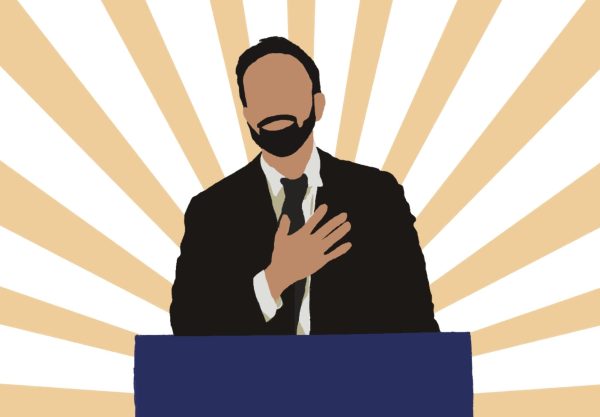A week and a half from now, New York City will have elected a new mayor.
Frontrunner Zohran Mamdani, an assemblyman from Queens, joins a long tradition of popular social policy — a tradition the Democratic Party is determined to stop right in its tracks.
New polling from AARP found that Mamdani will maintain a nearly 15-point lead over Independent challenger Andrew Cuomo if the vote is split between Mamdani’s opposition of Cuomo and Republican candidate Curtis Sliwa.
With votes transferred from ranked-choice voting, Mamdani earned the most votes in a mayoral primary in New York’s history, according to the City’s Board of Elections. He also appears to have brought tens of thousands of new voters to the polls, primarily below the age of 35, according to The New York Times.

This overwhelming popularity, paired with his steady and unprecedented lead, have positioned Mamdani to bring a long history of municipal social democracy into office. But as long as this history has existed, so has opposition from the so-called progressive establishment, who would rather welcome an authoritarian wave than cede any power to a mass working-class coalition.
Many of New York’s establishment Democrats — some of the party’s most powerful members — refuse to endorse Mamdani, opting to instead withhold their support of a candidate or cross party lines in the three-way race.
Senate Minority Leader Chuck Schumer and House Minority Leader Hakeem Jefferies have both refused to endorse a candidate in the race. Kirsten Gillibrand, who holds the other senate seat for New York state, also refused to issue an endorsement of Mamdani and made fabricated, racist claims that he was in support of global jihad.
Former New York City Mayor Michael Bloomberg, who was a 2020 Democratic presidential candidate, endorsed Cuomo over Mamdani, citing the former governor’s pragmatism and “government know-how.”
Establishment Democrats’ radio silence, or outright opposition, is no doubt motivated in part by anxieties about losing key swing voters ahead of next year’s midterm elections.
But, more importantly, it’s motivated by a fear of losing out on PAC donations by associating with a progressive, pro-Palestinian candidate. Primarily, they’re worried about losing millions of dollars from — and facing the wrath of — the American Israel Public Affairs Committee, the top donor for both Jefferies and Gillibrand in the last five years.
This phenomenon is not just happening in New York City. The dismissal of progressive candidates by establishment members despite their overwhelming popularity has become a long-standing American pastime.
Here in Massachusetts, Gov. Maura Healey refused to endorse incumbent Michelle Wu in Boston’s Democratic mayoral primary, who now runs unopposed after opponent Josh Kraft ended his campaign.
Wu embodies a similar vision of municipal politics to Mamdani, prioritizing affordable housing and decreasing public transit costs for riders. She also happened to hold a 50-point lead during the primary elections before Kraft dropped out and maintains a 61% approval rating, making her one of the most popular mayors in the city’s recent history.
In Maine, senate candidate Graham Platner is running on a platform of affordable housing and increasing taxes on billionaires, polling seven points ahead of incumbent Republican Senator Susan Collins. But despite his popularity, establishment leaders like Schumer have pushed 77-year-old Governor Janet Mills to run as the Democratic candidate for the seat instead.
In a vacuum, Mamdani isn’t much more than a moderate progressive with a policy-based platform who is working on basic implementation of a welfare state in New York City. His policy should be the rule, not the exception, for any left-of-center political wing. Platner is no different.
Their relative progressivism hasn’t blinded some on the far left, who choose to focus on their actual moderacy and fear stagnance once he takes office. Mamdani is being put through the paces of a political purity test, and despite his so-far successful overhaul of the Democratic Party politics the left despises, there is a fringe but vocal contingent of socialist critique online.
The chickens always come home to roost — and blind support for candidates like Sen. Bernie Sanders, who in the past have later shilled for conservative politics after receiving progressive electoral support, has left a bad taste in the mouths of some vocal online leftists.
But while public accountability remains imperative, uniform political purity is a dream that will never come to fruition with the current structure of American electoral politics. And “sabotage” by the far left through criticism of progressive politicians pales in comparison to the political sabotage enacted by the establishment who refuse to grant party support to some of the most popular candidates in history.
This editorial was written by Opinion Co-Editor Ada Sussman.















































































































